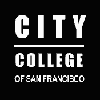
College and Career Education
Job Interviews
[ Class Home ] [ Homework Assignments ] [ Helpful Links ]
Tracey Kobayashi
50 Phelan Ave, NGYM
San Francisco, CA 94112
(415)452-7311
tkobayas@ccsf.edu
PE 9A: Fit or Fat
College & Career Ed
PE 50: Fitness Center

IM Me!
AIM - TKatCCSF
Yahoo - tkobico
ICQ - 155909399
For those of us who are shy, the interview can be the most harrowing part of the job search process. Here's what you should know to turn an interview into a job...
Know the Company
The company's products, customer base, subsidiaries and parent company (if applicable), principal locations, rank in the industry, sales and profit trends (available from financial websites like Yahoo Finance and Bloomberg), ownership type (public or private?), current plans...anything else you can think of!
Familiarize yourself with common industry terms and trends, the firm's principal competitors and their relative performance. Know where the industry is headed.
Image
Attire for non-professional positions should be neat, clean and appropriate. Slacks and long-sleeved collared shirt for males and a skirt and blouse for females.
Good personal hygeine and grooming are important! Shower, shave, make sure your hair is neat and refrain from wearing fragrance -- too many people these days have sensitivities to fragrances, better to have no smell than an offensive one
Bring a watch, pen, notepad and a briefcase or folder with extra, unfolded copies of your resume.
Smile and establish just the right amount of eye contact when you meet the interviewer. Walk with confidence and shake hands firmly, but don't take a death grip! Be relaxed, but not overly chatty. Wait for the recruiter to invite you to sit before doing so (unless he/she forgets).
Interview Format
Structured interviews involve a prescribed set of questions seeking relatively brief answers. Unstructured interviews involve more open-ended questions so you revewal more about yourself -- background, aspirations. Some interviews are a mix of the two. Watch for signals (body language) for clues as to whether your responses are too short or too long.
Draw parallels between our skills and experience and the position's demands. Describe your experience by emphasizing results and achievements rather than describing activities, but DON'T EXAGGERATE! Be positive, and don't make disparaging comments about a past employer or job no matter how much you detest them. Likewise, present "bad" experiences as "learning" experiences. Instead of "I hated telemarketing because I always bothered people at dinner time," try "I realized cold-calling wasn't my strong suit, and my talents lie in a more face-to-face atmosphere."
Don't talk finances until you receive the offer. If you're pressed to name a figure, give a range.
Don't be afraid to say I don't know. Sometimes recruiters ask tough questions you can't answer just to see how well you respond to stress.
Common Questions
- Tell me about a difficult situation you faced at a previous job.
- What are your greatest strengths?
- What are your weaknesses?
- Describe a work situation where you took initiative and went beyond your normal responsibilities.
- Why should we hire you?
Do You Have Any Questions?
Prepare several questions, but only ask 2 or 3. Many of your questions may be answered in the interview, so you'll want extra, but you don't want to tie up the interviewer's time by asking a torrent of questions. Use the questions to subtly show your knowledge of the firm and industry and emphasize your interest n the position.
The Aftermath
Write the names and titles of your interviewer and anyone else you met and any agreed-upon steps for follow-up. Send that thank-you within two days, while the interview is still fresh in her/his mind. Be polite and be sure to re-emphasize your interest in and competence for the position.
Allow one to two weeks (5-10 business days) for the interviewer to contact you. If you haven't heard anything, follow up with a phone call. If you are rejected, don't take it personally! Again, send a letter thanking them for considering yuu and request to be kept in mind for future openings. If you feel comfortable enough, you might ask for suggestons of where to look next.
Telephone Interviews
Used to pre-screen applicants. Can come any time from any company.
- Practice yur phone skills if needed!
- Keep a copy of your resume and keywords you think are relevant close at hand.
- Pay attention to voice patterns, and use your own voice (simple, direct, enthusiastic responses) to keep the conversation interesting and easy to follow.
- Listen carefully and concentrate. Take notes about what you're asked and what seemed most critical to the recruiter.
- Avoid long pauses. Quickly summarize key themes/points with clear examples of your contributions.
- Make sure you have the person's correct name and spelling, their number and address.
- Reaffirm your interest. Find out what happens next and what you can do to be competitive. Follow up with a thank-you.
[ Day 1 ] [ Day 2 ] [ Day 3 ] [ Day 4 ] [ Day 5 ]
[ Day6-7 ] [ Day 8 ] [ Day 9 ] [ Day 10 ]
[ Day 11 ] [ Day 12 ] [ Day 14 ]
Information in this section © 2005 Tracey Kobayashi, unless otherwise noted.